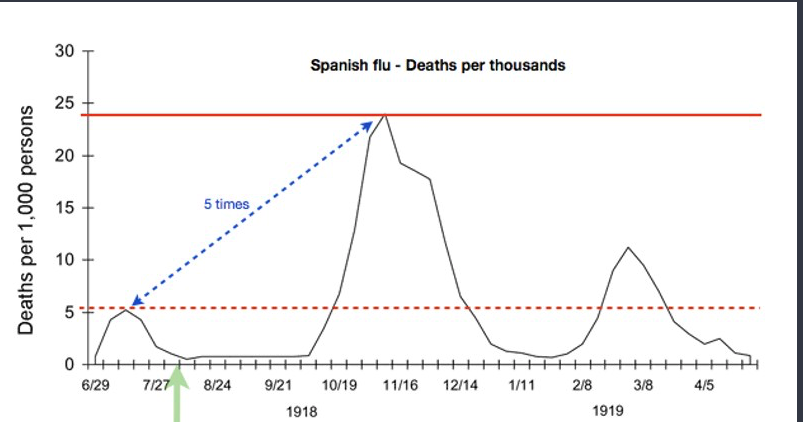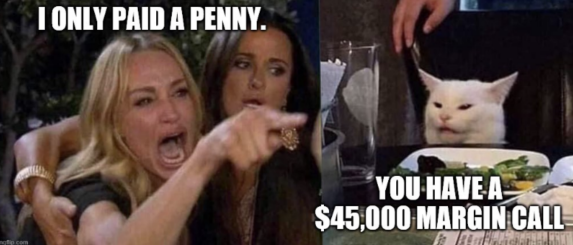Learning from history



The outrage against the Bank of China has been a trending topic on social media this week, as thousands of retail investors saw their life savings vanquished in betting on the oil market via the bank’s wealth management products.

In a deeper breakdown, they boosted the 2020 US growth forecast while cutting China and Europe. On the whole, this isn’t great news for the global economy but it’s nothing surprising.
Trying to win in the markets without a trading plan is like trying to build a house without blue prints – costly (and avoidable) mistakes are virtually inevitable. A trading plan simply requires a personal trading method with specific money management and trade entry rules.
Discipline was probably most frequent word used by the exceptional trades that I interviewed.
There are two reasons why discipline is critical.
A final word, remember that you are never immune to bad trading habits – the best you can do is to keep them latent. As soon as you get lazy or sloppy, they will return !
If trading were only a matter of making money, reading this book wouldn’t be necessary. Putting on a winning trade or even a series of winning trades requires absolutely no skill. On the other hand, creating consistent results and being able to keep what we’ve created does require skill. Making money consistently is a by-product of acquiring and mastering certain mental skills. The degree to which you understand this is the same degree to which you will stop focusing on the money and focus instead on how you can use your trading as a tool to master these skills. – Mark Douglas
Imagine the market as the totality of possibility. Unlimited in potential in any direction at any time. Potential for profit. Potential for loss. Potential beyond your capacity to ever comprehend. What you know is that the market goes up and down. Rarely does it stay unchanged for any length of time. Then imagine you as an observer watching the market. The market is an ocean of possibility, while you, the observer, represent someone in a small boat navigating in this infinite sea of possibility. What do you, as a buyer or seller, see? The tide goes in, the tide goes out. Storms come and go. There is no telling what this ocean of possibility is really going to do at any given time.
Yet, depending on the skill of the navigator of the boat in this ocean of infinite possibility, he either harvests what the ocean is willing to give him or he keeps looking for what he wants from the ocean. If his vision is locked on finding what he is looking for, he becomes blind to other possibility that the ocean presents. The ocean, as well as the market, does not know the fisherman is there. It is incapable of wanting to help or hurt the fisherman. Possibility opens and possibility closes irrelevant to the fisherman. The ocean simply is.
Opportunity and disaster both exist as possibility to the navigator of the boat in the sea of possibility. It is the discernment of the navigator, beyond fear, that opens or closes possibility in the market. Until fear is taken off-line, the fisherman of possibility sees through the eyes of fear and can not see the potential of a long term beneficial relationship with the ocean of possibility called the market.

Burton Pugh, a well known trader, market commentator, and writer in the 1930s wrote numerous books, one of which discussed his trading methodology and the psychology behind it. Even after 87 years some things never change and most likely never will. Here is a list of some of the great nuggets of wisdom found in his book A Better Way to Make Money.
1. The secret to losing money in the market is to know why. “The losers “were ‘playing the market’, not using it intelligently. The fellow at the other end of the deal, who was using it intelligently, not ‘playing the market’, is the one who got the money.”
2. “It is an undeniable fact that indiscriminate trading in a hectic market will send one to financial oblivion quicker than any other known process.”
3. “The most careful preparation-a systematic plan-is one of the essentials of success.”
4. “Market action is not complex but surprisingly simple. Yet it is often made to appear complex by newspaper forecasters and market letter writers.”
5. “Market action is human nature in action.”
6. All market movements are based on “two deep-seated and entirely natural emotions: the desire for gain and the fear of loss.”
7. “So anxious are people to find some talisman, some magic wand, that will help them secure the hidden riches of the market, that they will try anything from coin-flipping to crystal gazing to secure the desired assistance.”
8. “What marvelous results could be attained in the business of making money if those who buy stocks would take a little time to learn a few simple facts about the market in which they are blindly reposing their faith.”
9. “Market students are continually diverted from making true evaluations of securities and commodities because they study the statistics made by prices instead of the psychology of prices.”
10. “Adopt one system of trading and stick to it, just as you employ and stick to one physician in whom you learn to have confidence.”
11. “One of the most important points in your market education is to learn as early as possible that the customary and supposedly weighty market news is of very small importance. The news only looks important.”
12. “Don’t trade just because you can afford to lose.”
13. “Practice makes perfect is an old copybook adage that works well in the market place.”
14. “If a trade fails to come out right, the error will be found in the operator-not the market.”
15. “Trading is simple another form of business. Treat it as such.”
16. “Trend to the investor is like the vein of gold to the miner, who must follow the vein faithfully if he expects to get the yellow metal.”
17. “Stocks are made to buy and sell…not to be bought and held.”
18. No matter what a thing costs, stocks or otherwise, “it is worth only what you can somebody to pay for it.”
19. People will always be prone to be extravagantly optimistic or dolefully in the slumps and “in this action is unlimited wealth for the men who realize this fact and will use it with confidence and decision.”
20. “Success is the most desirable thing in the world, but it is an eliminating contest. It may trample the thoughtless trader into the dust, but it will pour large treasure into the laps of those who work in sincere harmony with its laws.”